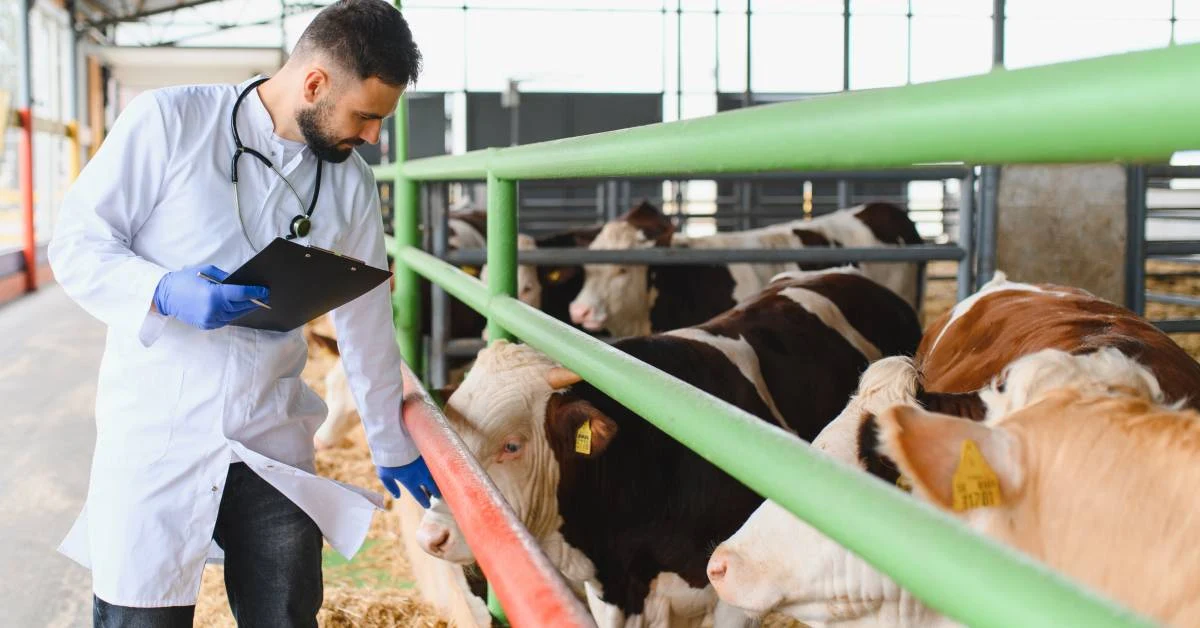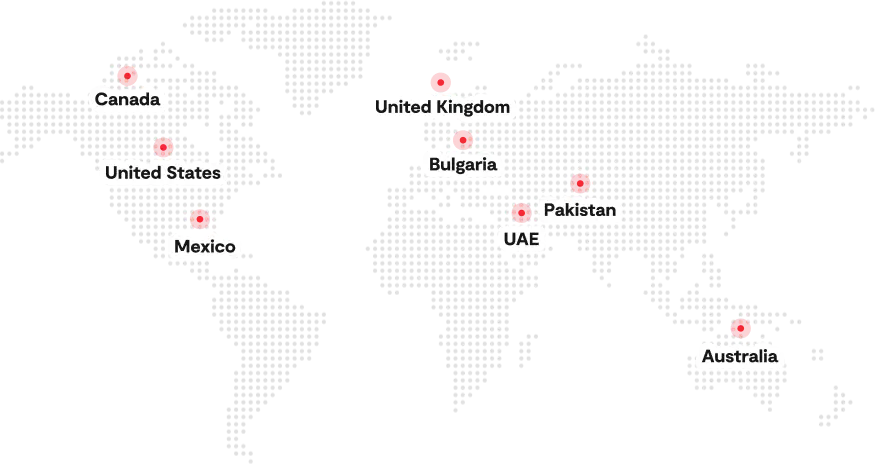The agricultural industry has evolved significantly from traditional farming methods to a more technologically advanced and resource-intensive approach. Modern farms face many challenges, including rising operational costs, the need for efficient resource management, and stringent regulatory compliance.
As the industry grows more complex, these challenges necessitate innovative solutions to maintain profitability and sustainability. Technological NetSuite integration in agriculture operations has become essential in response to these challenges. Farm management software is crucial in this transformation, offering tools that help farmers manage resources more effectively, streamline operations, and make data-driven decisions.
Adopting such technology is a trend and a necessity in modern agriculture. NetSuite ERP is a cloud-based enterprise resource planning (ERP) system offering a comprehensive application suite to manage business processes across various industries.
Its versatility and scalability make it particularly well-suited for the agricultural sector, where it can address the unique challenges of farm management, from inventory control to financial management. Keep reading this blog to explore how everything can be improved with NetSuite integration in agriculture operations.
The Role of ERP in Modern Agriculture
ERP systems play a crucial role in modern agriculture by integrating and optimizing various aspects of farm management. NetSuite integration in agriculture operations can enable farmers to manage resources more effectively, ensure regulation compliance, streamline financial processes, and improve operational efficiency.
With an ERP system like NetSuite, farms can navigate the complexities of modern agriculture and maintain profitability in a challenging and competitive environment.
What is ERP?
Enterprise Resource Planning (ERP) systems are integrated software platforms that manage a company’s resources, including finance, supply chain, manufacturing, and human resources. ERP systems centralize data, providing a unified view of operations and enabling better decision-making.
Importance of ERP in Agriculture
ERP systems in Agriculture are crucial for managing the complexities of modern farming. NetSuite integration in agriculture operations can enable farmers to monitor and control various aspects of their operations, from crop management to financial planning, ensuring that all resources are utilized efficiently and that the farm remains compliant with industry regulations.
Key Components of NetSuite ERP for Agriculture
When it comes to agriculture, NetSuite integration in agriculture operations offers several modules and features that address the unique needs of the industry:
- Inventory Management: Tracks and manages farm inputs like seeds, fertilizers, and pesticides.
- Financials: Integrates budgeting, accounting, and financial reporting for better financial oversight.
- Procurement: Streamlines the purchasing process, ensuring that essential supplies are sourced efficiently.
- CRM (Customer Relationship Management): Helps manage relationships with customers, distributors, and other stakeholders, which is crucial for marketing and sales in agriculture.
How NetSuite Integration Enhances Agricultural Operations
NetSuite integration in agriculture operations offers a comprehensive solution to manage the diverse and complex needs of modern farming. Here’s how ERP NetSuite integration in agriculture operations:
Improved Resource Management
Efficient resource management is crucial for maximizing productivity and profitability in agriculture. NetSuite integration in agriculture operations offers several features that streamline the management of resources such as inventory, labor, and equipment.
Inventory and Supply Chain Management
ERP NetSuite integration in agriculture operations provides robust inventory management tools that allow farmers to track and manage their inventory of seeds, fertilizers, pesticides, and other farming supplies in real time. The system automates reorder points, ensuring essential supplies are always available when needed, reducing downtime, and optimizing planting schedules.
Additionally, NetSuite’s supply chain management features provide end-to-end visibility, enabling better coordination with suppliers and ensuring timely material delivery, which is crucial during planting and harvest seasons.
Efficient Labor Management
Managing a farm’s workforce can be challenging, especially when dealing with seasonal labor and varying workloads. NetSuite integration in agriculture operations simplifies labor management by integrating payroll, time tracking, and compliance with labor laws into a single system.
This NetSuite integration in agriculture ensures farmers can efficiently schedule workers, track labor costs, and comply with regulations. This reduces the risk of legal issues and improves overall workforce productivity.
Equipment Maintenance and Asset Management
Farming equipment is a significant investment, and proper maintenance is critical to avoid costly breakdowns during peak seasons. NetSuite ERP’s asset management module helps farmers track equipment usage, maintenance schedules, and depreciation.
By automating maintenance reminders and providing detailed reports on equipment performance, NetSuite helps reduce downtime and extend the lifespan of machinery, ultimately lowering operational costs.
Financial Management and Reporting
Effective financial management is essential for the sustainability of any agricultural operation. NetSuite integration in agriculture operations improves financial management by providing budgeting, forecasting, and real-time financial reporting tools.
Budgeting and Forecasting
NetSuite ERP’s financial management module allows farmers to create detailed budgets and forecasts, helping them plan for the year ahead. By analyzing past financial data and incorporating current market trends, NetSuite enables farmers to set realistic financial goals and allocate resources more effectively. This proactive approach to financial planning helps farmers anticipate cash flow needs, reduce wasteful spending, and increase profitability.
Real-Time Financial Data and Analytics
NetSuite ERP’s key advantage is its ability to provide real-time financial insights. With centralized financial data accessible through customizable dashboards, farmers can monitor their financial performance anytime. This real-time access allows quicker spending adjustments, more informed decision-making, and better overall financial control.
Additionally, NetSuite’s analytics tools enable detailed financial analysis, helping farmers identify trends and optimize their operations for greater efficiency and profitability.
Data-Driven Decision Making
In today’s data-rich environment, making informed, data-driven decisions is a significant competitive advantage for farms. NetSuite ERP facilitates this by centralizing data and providing powerful tools for analysis and reporting.
Integrated Data Management
Modern farms generate vast amounts of data, including crop yields, weather patterns, soil conditions, and market prices. NetSuite ERP integrates this data into a single platform, providing farmers a holistic view of their operations.
This centralized data management enables more accurate and timely decisions, whether determining the best time to plant, selecting the most profitable crops, or adjusting irrigation schedules based on weather forecasts.
Business Intelligence and Reporting Tools
NetSuite’s business intelligence (BI) and reporting tools are designed to help farmers analyze data and generate actionable insights. With features like custom reporting, trend analysis, and predictive analytics, farmers can identify patterns and make data-driven decisions that enhance operational efficiency. For example, by analyzing yield data, farmers can optimize planting strategies and improve crop rotation schedules, increasing productivity and sustainability.
Compliance and Risk Management
Agriculture is a highly regulated industry, with farms needing to comply with various local, national, and international regulations. Additionally, the sector is exposed to multiple risks, including weather events, market volatility, and supply chain disruptions. NetSuite ERP helps farms manage these challenges effectively.
Regulatory Compliance
Compliance with agricultural regulations is critical to avoiding fines and maintaining the farm’s reputation. NetSuite ERP simplifies compliance by automating the tracking and reporting of regulatory requirements. For example, the system can help ensure that pesticide usage is documented according to local regulations or that labor practices comply with employment laws.
Additionally, NetSuite’s automated reporting features make generating the necessary documentation for audits and inspections easier, reducing the administrative burden on farm managers and minimizing the risk of non-compliance.
Risk Mitigation
Farming is inherently risky, with potential disruptions from weather, pests, diseases, and market fluctuations. NetSuite ERP helps farmers mitigate these risks by providing risk management and contingency planning tools.
For instance, by integrating real-time weather data, NetSuite can alert farmers to upcoming adverse conditions, allowing them to take preventive measures.
The system also offers supply chain visibility, helping farmers identify potential disruptions and adjust their operations accordingly. Additionally, NetSuite’s financial tools enable better cash flow management, assisting farms to maintain liquidity during market volatility.
How Can Different Types of Farms Benefit from Implementing NetSuite?
NetSuite ERP can be customized to suit the diverse needs of different farming operations, whether large-scale, small, or mid-sized farms, agribusinesses, or cooperatives. Each type of farm faces unique challenges, and NetSuite’s adaptability provides a tailored solution to meet those needs:
Large-Scale Farm Operations
Large farms face resource management, financial oversight, and supply chain coordination complexities. NetSuite offers several ERP features and benefits to streamline operations:
- Streamlined Operations Management: With centralized data management, large-scale farms can more efficiently handle everything from crop management to equipment maintenance. This ensures that all departments are coordinated, reducing communication gaps and boosting productivity.
- Enhanced Financial Planning and Analysis: Large-scale farms often have complex financial needs. NetSuite provides real-time financial reporting and advanced budgeting tools that allow for more accurate financial planning and improve profitability and cost control.
- Supply Chain Optimization: Coordinating with multiple suppliers and distributors can be challenging, especially for large-scale farms. NetSuite’s supply chain management features help optimize logistics, ensuring timely delivery of goods and more efficient transportation management.
Small and Mid-Sized Farms
Small and mid-sized farms often operate on tighter budgets, so having access to affordable, scalable solutions like NetSuite is crucial. Here’s how these farms benefit from ERP integration:
- Cost-Effective Solutions: NetSuite offers small and mid-sized farms access to enterprise-level tools without the high upfront costs typically associated with such systems. ERP customization and scalability mean farmers can start small and grow their ERP system as needed.
- Improved Farm Management: Smaller-scale operations still require precise crop and livestock data tracking. NetSuite simplifies the monitoring and management of farm activities, allowing for better oversight of productivity and resource use.
- Financial Stability: With integrated budgeting, forecasting, and access to financing and grants through improved reporting, small farms can ensure they remain financially stable and sustainable over the long term.
Agribusinesses and Cooperatives
Agribusinesses and cooperatives often need to manage collaborative efforts and large volumes of data. NetSuite ERP provides tools for effective management and growth:
- Collaborative Management: Collaboration among members is essential for cooperatives. NetSuite allows centralized data sharing and reporting, ensuring smooth communication and decision-making across all locations.
- Market Expansion: Agribusinesses can benefit from NetSuite’s CRM features to analyze market trends better and develop growth strategies. Once you understand customer behavior and market dynamics, your business can expand more effectively into new markets.
- Regulatory Compliance: Agribusinesses face complex regulatory requirements, mainly when operating across different regions. NetSuite simplifies compliance by providing tracking and reporting tools for audits and certifications, ensuring operations meet all necessary standards.
The Competitive Advantage of NetSuite ERP in Agriculture
In agriculture, having the right tools can make all the difference. NetSuite ERP offers a significant edge by providing flexible, scalable, and integrated solutions tailored to the industry’s unique needs.
Whether enhancing operational efficiency, improving customer relationships, or integrating with cutting-edge AgTech solutions, NetSuite ERP empowers farms to stay ahead of the competition.
In this section, we’ll explore the key advantages that NetSuite ERP brings to agricultural businesses, helping them thrive:
Flexibility and Scalability
NetSuite’s flexibility and scalability make it suitable for farms of all sizes. Whether managing a small family farm or a large agribusiness, NetSuite can be tailored to meet the operation’s specific needs, ensuring that all processes are optimized for maximum efficiency.
Integration with Other AgTech Solutions
NetSuite is compatible with various AgTech solutions, including IoT devices and precision agriculture tools. This NetSuite integration in agriculture operations enhances the overall efficiency of farm operations by providing real-time data and insights that inform decision-making.
Enhancing Customer Relationships and Marketing
NetSuite’s CRM tools help manage customer relationships and marketing efforts more effectively. NetSuite integration in agriculture operations provides insights into customer behavior and preferences. These tools enable farms to develop targeted marketing strategies that increase customer satisfaction and loyalty.
Overcoming Common Challenges with NetSuite Integration
ERP NetSuite integration in agriculture operations can bring significant benefits, but the process has several implementation challenges. From implementation hurdles to training requirements, farms may encounter various obstacles as they adopt this powerful tool.
However, with the right approach and support, these challenges can be effectively managed, ensuring a smooth transition and long-term success. This section explores the common challenges with NetSuite integration in agriculture operations and offers practical solutions to overcome them.
Implementation Challenges
NetSuite integration in agriculture operations can be challenging, particularly in terms of cost, time, and technical know-how. However, with the right planning and support, these challenges can be overcome, leading to significant long-term benefits.
Training and Support
Ensuring the smooth NetSuite integration in agriculture operations requires comprehensive training and ongoing support. By investing in training and providing continuous support, farms can ensure that all users are proficient in using the system, leading to more efficient operations.
ROI and Long-Term Benefits
The return on investment (ROI) for implementing NetSuite ERP in agriculture is significant. NetSuite integration in agriculture operations delivers long-term benefits that far outweigh the initial investment by improving operational efficiency, reducing costs, and enhancing decision-making.
How to Get Started with Folio3 AgTech NetSuite for Agriculture?
Here’s how you can get started with Folio3 Agtech NetSuite ERP Services for your agriculture needs and NetSuite integration in agriculture operations:
Assessing Your Farm’s Needs
Before integrating NetSuite in agriculture operations, assessing your farm’s specific needs is essential. This involves evaluating current processes, identifying areas for improvement, and determining how NetSuite can help address these challenges.
Choosing the Right Partner
Selecting a certified NetSuite partner experienced in agriculture is crucial for a successful implementation. A knowledgeable partner can guide you through the process, ensuring the system is tailored to meet your farm’s unique needs.
Steps to Implementation
NetSuite integration in agriculture operations involves several steps, from initial consultation to full deployment. This process includes data migration, system configuration, and user training, ensuring the system is fully integrated and operational.
Post-Implementation Support
Ongoing support is essential to keeping the system optimized. Regular updates, training, and technical support ensure that the system meets the farm’s evolving needs and delivers long-term value.
Conclusion
Integrating NetSuite ERP into agricultural operations offers numerous benefits, from improved resource management and financial planning to enhanced decision-making and compliance. Folio3 Agtech can help you modernize farm management with NetSuite, and farms can overcome the challenges of modern agriculture and achieve greater efficiency, profitability, and sustainability.
FAQs
What is NetSuite ERP?
NetSuite ERP is a cloud-based enterprise resource planning system that centralizes and streamlines various business processes.
How Does NetSuite ERP Benefit Agriculture?
NetSuite ERP enhances agricultural operations by improving resource management, financial planning, and decision-making, increasing efficiency and profitability.
Can NetSuite ERP Be Customized for Small Farms?
Yes, NetSuite is scalable and can be customized to meet the needs of farms of all sizes, from small family farms to large agribusinesses.
How Does NetSuite Help With Compliance in Agriculture?
NetSuite automates reporting and ensures that all processes adhere to industry regulations, helping farms stay compliant.







